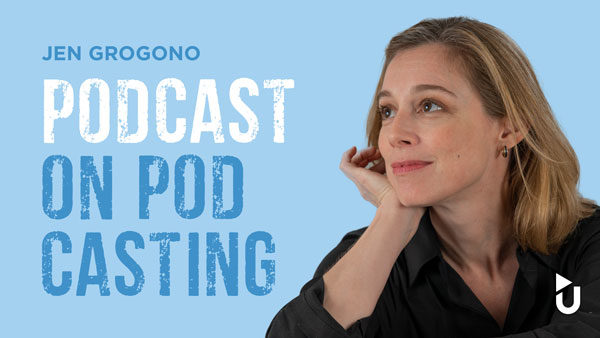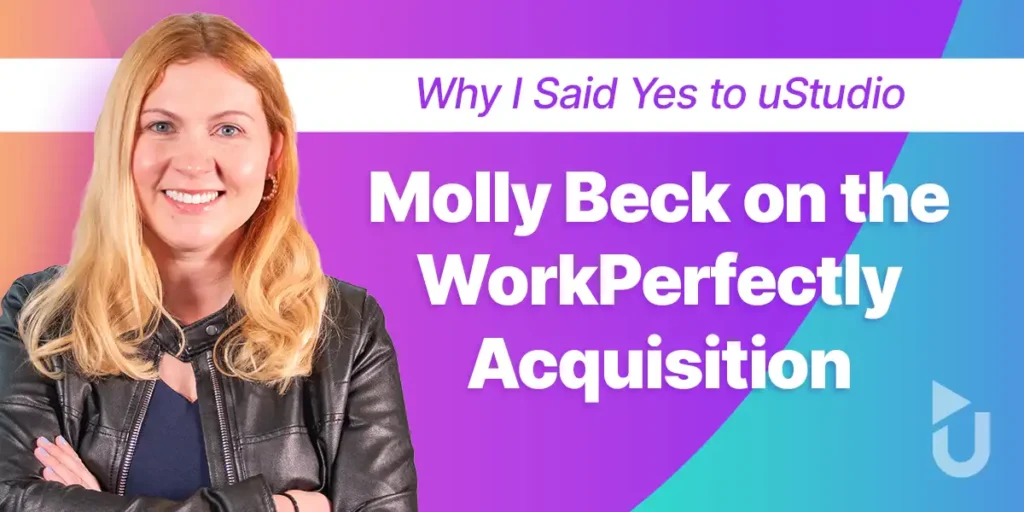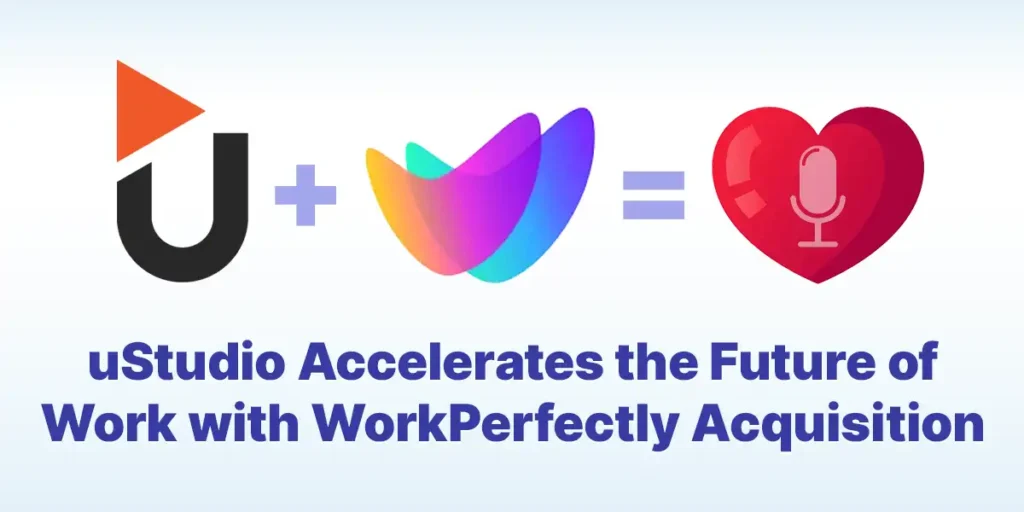Creating an Internal Corporate Podcast: 4 Reasons to Start
Jackie Logan | Podcasting

Why Podcasting? Why Now?
If you’re on the fence as to whether it’s worth creating an internal corporate podcast, you should know it’s a channel that’s already overtaken social media channels and emails. Podcasts are easy to access, easy to listen to during downtime, and easy to digest, making them an ideal alternative to traditional corporate communications.
The podcasting market has skyrocketed, with 70 million people listening to them in 2023. And there are no signs of slowing down. Statista reports the number of listeners is projected to reach more than 110 million by 2029.
Compare those numbers with the ones related to emails. More than 30% of company emails are never opened. Of those opened, most employees spend little to no time reading them. If you’re trying to educate, inform, motivate or otherwise reach your employees via email alone, how many employees are absorbing the information? How many are actually engaging with it?
Creating an internal corporate podcast changes the game on internal communications, reaching employees where they often are—listening to podcasts. Why not create your own streaming network to tap into this increasingly preferred channel?
But first, let’s define what an internal corporate podcast is.
What Is an Internal Corporate Podcast?
An internal corporate podcast is a private, audio-based communication tool used by organizations to share information exclusively with their employees or other internal stakeholders. Unlike public podcasts, which are available to anyone, internal corporate podcasts are secured through encryption, password protection, or other authentication methods to ensure only authorized listeners can access them.
Companies are increasingly investing in a private podcasting platform to create their own secure podcasts for several key reasons:
- Internal Communication: Secure podcasts provide an efficient, modern way for companies to communicate with employees across different locations. These podcasts can be used for leadership messages, company-wide announcements, or ongoing training. This form of communication is particularly useful in organizations with remote or hybrid workforces, as podcasts can be consumed at the employee’s convenience.
- Training and Development: Podcasts are being leveraged to deliver training materials, onboarding content, and professional development courses. By creating an internal corporate podcast network with secure podcasts, companies can share proprietary information, ensuring that only authorized personnel have access.
- Confidentiality and Security: Sensitive topics such as corporate strategy, product development, or financial performance need to be protected from outside parties. Secure podcasting platforms use encryption and authentication to control who can access this information, ensuring that it remains confidential.
- Engagement and Accessibility: Podcasts are a flexible format that can improve employee engagement. They allow listeners to consume content on their own schedule, which can be more effective than traditional email or video updates. Additionally, secure podcasts can be accessed from mobile devices, making it easier for employees who are on the move.
- Customization and Branding: Companies can create podcasts tailored to their culture, internal branding, and business needs. Unlike public platforms, a secure podcast enables organizations to control the message and the audience without worrying about outside influences or ads.
- Data Control and Insights: By using private podcasting solutions, companies can gain insights into employee engagement, like who is listening and for how long. This helps them adjust the content to better serve their internal audience and measure the effectiveness of their communications.
In essence, the need for efficient, engaging, and secure internal communication has driven the adoption of secure corporate podcasting as a flexible and controlled medium.
5 Reasons Why You Should Be Creating Internal Corporate Podcasts
Reason #1. Podcasting is more popular than ever.
According to Edison Research, more people than ever are listening to podcasts. 47% of those over 12 years old listen at least once a month and 34% listen weekly. In fact, 23% of weekly podcast listeners consume podcasts for at least 10 hours a week.
But what's interesting is that very few companies have created a strategy around how to leverage this medium for their businesses. This is even more ironic because as companies hire younger workers who are very comfortable using streaming media, such as audio and video, they're seeing an increased demand for company knowledge and information to be distributed in these formats.
Frankly, research says that even older generations prefer to consume information in an audio environment. People are consuming streaming media on their way to work, on their morning jog, or when they're eating breakfast. It’s a very natural and popular behavior.
As consumers, we're accustomed to listening to podcasts and audiobooks, and we would prefer to use them in the workplace. Corporate leaders can and should do a lot to figure out how to leverage podcasting for improved workplace communications. Creating an internal podcast should be a top priority.
Reason #2. Audio podcasts are faster and easier to produce than video.
What we kept hearing was, “We’re sick of everybody in the company wanting a video. Video is expensive and time-consuming. Not everything needs a video.”
As an executive with a background in media, especially video technology, this was a little bit hard to hear because at uStudio, we strongly believe—and the data proves it—that video is the most powerful medium for conveying a message. But indeed, there are certain use cases that can be better suited to an audio or podcast strategy. In particular, when cost, speed, length, frequency or mobile distribution are factors, podcasting can be a better way to go.
Audio production requires significantly less gear, fewer people, less planning and coordination, and lower bandwidth to distribute, all of which translate to a more nimble and inexpensive way to get your message out. Multiply that by daily or weekly touchpoints, and you can see where the rapid, flexible nature of audio can be a great tool for enterprise communications.
For example, sales or retail enablement leaders who work for large companies with growing product lines or changing promotions need to make sure the people on the front lines are knowledgeable and informed about daily and weekly sales priorities. Those messages need to be easily recorded from anywhere the sales leader happens to be and distributed securely with ease, often to a highly distributed global or regional team. An audio-centric workflow makes this fast and easy.
Reason #3. Podcasting is ideal for a geographically dispersed, mobile or remote workforce.
As we noted, nobody’s reading emails anymore. It’s completely acceptable now to say: “Yeah, I didn’t see that email.” People are completely inundated with messages to the point that email is just becoming unusable. So if you are a remote employee—which could be someone who works from home, someone who is not in the corporate headquarters, or just someone who is not co-located with your team -- it's hard to keep your finger on the pulse of what's going on.
Email and chat applications can actually exacerbate that by creating a lot of noise, whereas podcasting can be a great filter. When information is being recorded and time-boxed, there is more pressure to prioritize and convey only the most important ideas in the right order. This is tremendously helpful to remote employees who need help sifting through the clutter.
What's more, streaming audio is just incredibly convenient, which makes it a great choice for remote or mobile workers. They can listen when and where they want, which is great for employees in different time zones. They can download and listen offline or stream easily in low-bandwidth situations. And perhaps what's most exciting is that an audio-only recorded message frees the listener up to multitask, so you can reach them when they're doing other things, or what is commonly referred to as "windshield time."
The other thing that’s often overlooked with streaming media that makes it ideally suited to a global workforce is that you have so much more data. An audio stream puts off way more data than email, chat applications or documents. You never really know if somebody read paragraph six in an email. Your data will only show that the email was opened. You can't prove the message was successfully received or understood.
Meanwhile, with streaming media, we know everything. We know precisely when you listen to something and how often you listen. We know if you rewound 15 times or listened in car mode. This kind of data gives you far greater insight into your mobile workforce and the quality and value of your content and messaging.
Reason #4. It's finally possible to create internal corporate podcasts securely and as easily as public ones.
Public podcasting has been around for some time, but that doesn't mean that it was easy to use in an enterprise setting. Great security advances have now made secure, private podcasting more possible than ever in a business setting. At uStudio, we refer to private messages as "precious cargo." You can't have a podcast technology that's shipping "precious cargo" unless it's fully vetted and secure. You need to make sure that trade secrets, strategies, and information only get out to the people that you approve to hear them.
Creating an internal corporate podcast has one cardinal rule: it has to be secure. Sometimes people think that having a username and password makes something secure, which of course, it does not. There are so many moving parts and access points that need to be locked down at every level in order to secure an audio or video stream.
For example, at uStudio, we employ a multi-tier security model. We enable a username and password login, but they are tied into your corporate directory through SSO. We also lock down the content at the CDN level, as well as locking down the players themselves, so that they will only run once they've been authenticated.
As you can see, we take security very seriously because it is the thing that determines if this internal podcasting platform is going to be good enough for the "precious cargo" that you find in enterprise use cases. But the beauty is, we've found a way to hide all of this complexity and deliver -- what appears to be on the surface -- a fairly simple application that just works securely the way an enterprise user needs it to.
Start Creating Your Internal Corporate Podcasts
Getting started with a streaming network to feature your podcasts is not difficult or time-consuming, especially if you use the right podcast platform like uStudio. You can easily create secure corporate podcasts for all kinds of internal communications for onsite and remote employees. The best platforms allow you to securely integrate into other systems, such as your LMS, so you can podcast to your employees without worrying about the content getting into the wrong hands.
Your employees want podcasting. It’s time to level up your communications game and meet them where they are. By creating internal corporate podcasts, you not only reach more employees, but you keep them more engaged.
Want to see how an industry-leading private podcast platform works? Request a demo and discover this new channel for internal communications.
To hear more episodes of Podcast on Podcasting, download our app on iOS or Android today, or visit our podcast episode library.
I am an experienced Go-to-Market and product development leader of SaaS solutions across several industries, both commercial and government. I blend creativity, strategy, and research to launch and evolve products with a knack for asking the right question at the right time to expose unspoken market needs. I leverage my crisp communication skills to organize cross functional teams, manage high-profile client success, and publish public-facing product marketing material.


